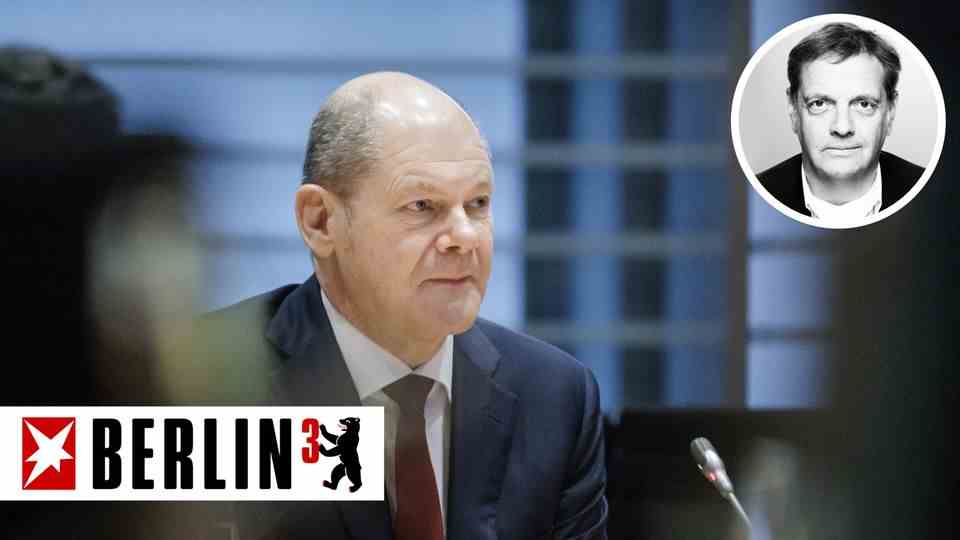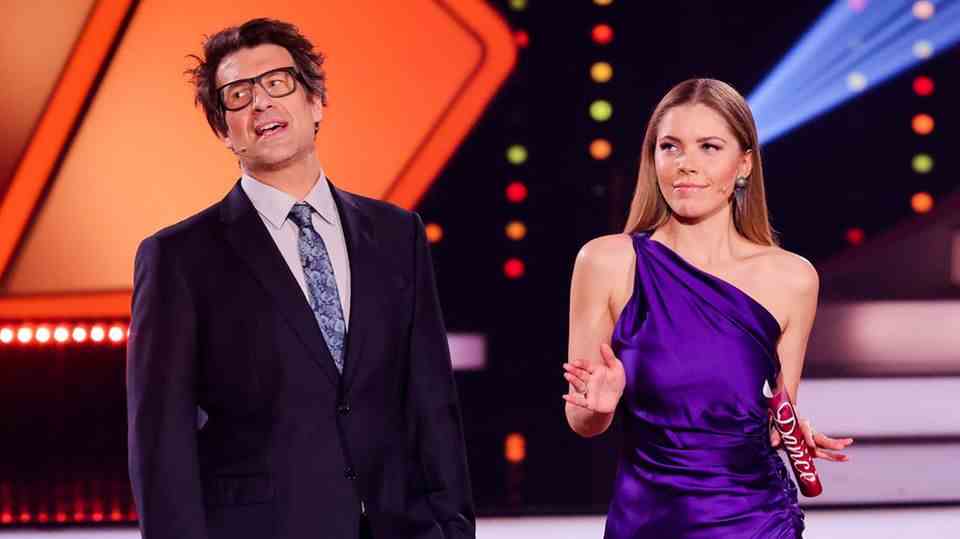state election
Tobias Hans against Anke Rehlinger: Who will lead the Saarland from Sunday?
Incumbent Tobias Hans (CDU, left) and Economics Minister Anke Rehlinger (SPD) are fighting for the office of Prime Minister
© Oliver Dietze
Six months after the federal election, a first mood test for the traffic light government is taking place in Saarland. The incumbent Tobias Hans from the CDU and his previous SPD Economics Minister Anke Rehlinger want to become Prime Minister.
You give everything in the election campaign. Despite Corona. First, the Saarland SPD top candidate Anke Rehlinger had to cancel all appointments almost three weeks ago because of a corona infection – without further ado, her team took her to appointments as a life-size cardboard figure. Then Prime Minister and CDU top candidate Tobias Hans got infected – and campaigned digitally with a robot: with “Robi-Tobi”, a telepresence robot that Hans could control himself and through which he was connected live. So he “rolled” through a number of cities in the country to talk to people.
SPD faces first election victory since 1999
There’s a lot at stake this Sunday. Because in the first state election after the federal election in 2021, the change of power could be repeated as in the federal government – and the winner after a long time would be the SPD again. In Saarland, that would be the case for the first time in almost 23 years, since the CDU has been the prime minister there since 1999. “There is a real chance for a change,” says the Trier political scientist Uwe Jun. “That gives the election a special tension.”
The focus is on Hans and Deputy Prime Minister Anke Rehlinger (SPD). A black-red duel, because both want to lead the new government. So far, Hans and Rehlinger have governed the small country together in a grand coalition. Economics Minister Rehlinger is now attacking: “I want to be the new prime minister. The deputy has to go.” In the event of an election victory, she would be the first female SPD prime minister in the Saar.
Recent surveys give the lawyer tailwind. Your party and person are clearly ahead of the CDU and Hans, who has been in office since March 2018 as the successor to Annegret Kramp-Karrenbauer. Pollsters recently saw the SPD at 41 percent, the CDU at 28 percent. And when it comes to the direct election question, more than half want Rehlinger as head of government, while Hans only wants a third. Saarland, with almost a million inhabitants, has been governed by a grand coalition since 2012.
Saarland as a mood test for the federal government
But the election is more than a Saarland election. It is also considered the first major mood test for the red-green-yellow traffic light government in Berlin. And the leap from the grand coalition to traffic lights, as in the federal government, could also be repeated in the Saar. While CDU leader Hans, who has been under pressure in recent weeks, is warning of a traffic light in Saarland and wants to continue the grand coalition, Rehlinger is keeping a low profile on the subject. She has “great sympathy” for a GroKo, which would be even better if it was led “from the front” by the SPD, she says.
Hans fights for his position as a top candidate for the first time. He sees himself as the bearer of bad news in the Corona crisis. He hopes that his CDU can catch up in the last few meters – and has no “Plan B in the drawer”. It is unclear whether he would also make junior partner in a grand coalition. He tries to score points with topics that are worth talking about – such as the demand for a fuel price brake, which he also played out via mobile phone video from the gas station.
Chancellor gives impetus to the election campaign
Despite polls, Rehlinger remains cautious. She is happy about stable, good values, but expects a close race. “The most crucial poll of all will be on March 27, when voters will have the say.” The shock is still deep when five years ago she lost by a huge margin to the then incumbent Kramp-Karrenbauer, although polls assumed it would be a neck-and-neck race. In surveys, Hans speaks of “snapshots” anyway.
As deputy SPD federal chairman, Rehlinger is well connected in Berlin. And she emphasizes her contacts: “While others were yelling into their cell phones at the gas station, I took my cell phone and used it to call the Chancellor and many others in Berlin,” she says. For the first time in 16 years, the SPD on the Saar was the strongest force in the federal elections.
Tailwind for Rehlinger comes from Chancellor Olaf Scholz (SPD). Rehlinger is “the right prime minister,” said Scholz. Because she has shown in recent years as Economics Minister “that she knows the problems well and that she knows what needs to be done to secure the future for many jobs here in Saarland,” he said during an election campaign in Neunkirchen.
Three more state elections this year
Political scientist Jun says Hans’ “incumbent bonus” shouldn’t be underestimated. But: “You know Ms. Rehlinger just as well as the prime minister. There is hardly any bonus in office.” Rehlinger has been state minister for ten years. Hans has distinguished himself as a modernizer in recent years and has made digitization, artificial intelligence and research competence his main topics.
The federal government is also looking at the Saarland elections as the prelude to four state elections in 2022. Also with the question: Will the new CDU chairman Friedrich Merz succeed in giving his party a boost again? The entire CDU national board traveled to Saarland at the beginning of March to give Hans a tailwind. This year there will be elections in Schleswig-Holstein, North Rhine-Westphalia and Lower Saxony.
Expert Jun considers a grand coalition “not an unlikely solution, with whoever is prime minister.” According to surveys, red-green or red-yellow could also be possible in the Saar if the Greens and the FDP – currently not represented in the state parliament – manage to move in. Recent polls see all small parties (Left, FDP, Greens and AfD) close to the five percent hurdle. The recent, brilliant resignation of left-wing politician Oskar Lafontaine from the party has damaged the already divided left again – they could now stay out.



